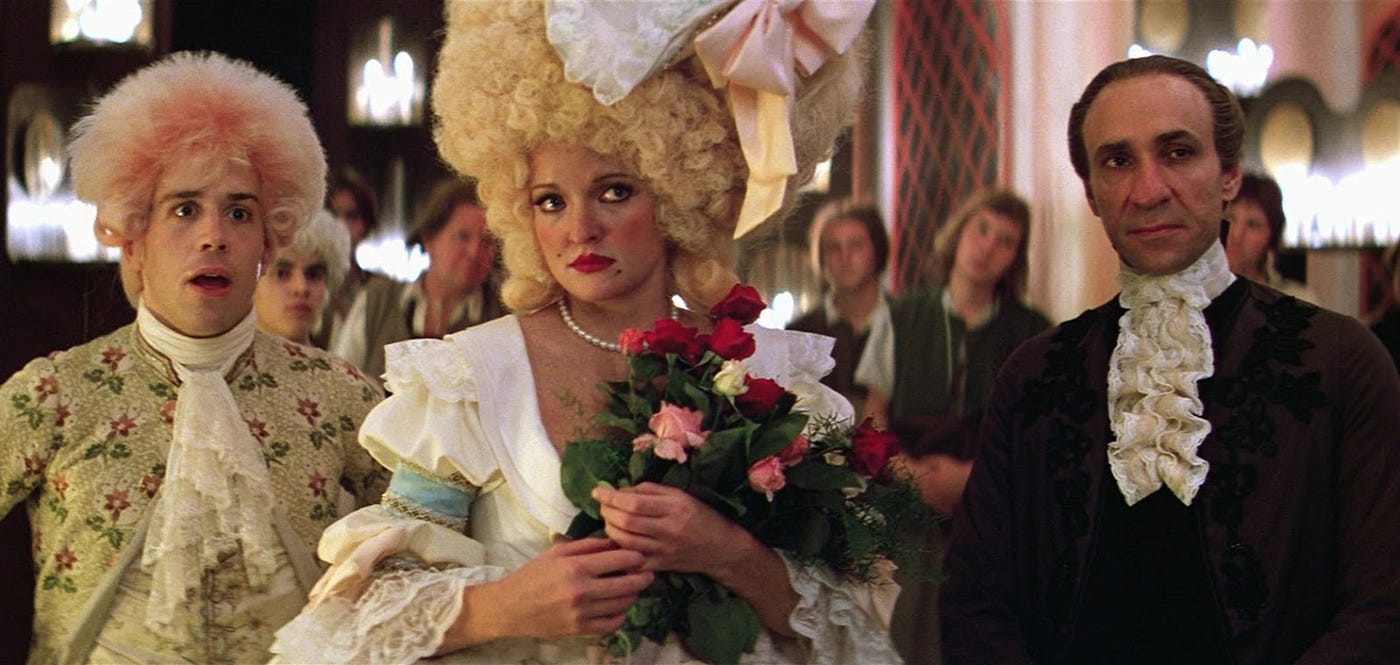We were watching yesterday the movie “Amadeus” with my Sweetie. We were presented with the Director’s cut, a version I hadn’t seen yet. Two scenes, previously unknown stood out. The first one is when Mozart wife Stanzie agrees to delivers sexual favors to Salieri in order for her husband to be able to teach young female pupils. The second scene is cut into two parts during the movie. First part is Mozart acceding to fame, in a Chateau of the time and trying to teach to a young female pupil (apparently only ladies took up music). The Lord, his wife and their noisy three dogs insist on watching the lesson. The dogs bark as Mozart plays the piano, so much so that he gets mad and storms out the room. Later in the movie you see an older Mozart, disheveled and probably drunk or hung over, begging the very same lord to teach his daughter, daughter who’s now married and living in another town. When Amadeus gets the news that his potential pupil is gone, he then proceeds to ask for a loan. It is a pathetic scene to see Mozart as a shadow of himself having to beg someone he doesn’t respect at all.
I’ve read a few biography of Mozart. The one I would recommend is by Jan Swafford, a meticulous man that seems attached to the truth rather than the legends. Swafford comments sometimes on the movie “Amadeus” to indicate that the composer financial situation, although precarious, was not as bad as depicted in the film.
I will not hide it was painful to watch those two new scenes, though. Mozart as a bum is far from the glorious genius he’s been portrayed to be. I cringed looking at the caricature of himself trying to extort some money out of an idiot.
Yes, Mozart is recognized as the first independent musician. Before that, musicians worked for the court or the church. But he had many ways of making money. His wife, Constanze, capitalize on them. Here is Wikipedia: “Mozart died in 1791, leaving debts and placing Constanze in a difficult position. At this point Constanze’s business skills came into fruition: she obtained a pension from the emperor, organized profitable memorial concerts, and embarked on a campaign to publish the works of her late husband.
These efforts gradually made Constanze financially secure and ultimately, wealthy.”
Disclaimer: I love the movie “Amadeus”. Whether it is accurate or not is not that important. I think Tom Hulce’s work is magnificent as Amadeus, as is F. Murray Abraham stunning as Salieri. I don’t care if the two scenes that were included in the director’s cut could have happened or not to Mozart or his wife. All I know is that it made me want to listen to the music of Mozart and read again Jan Swafford biography. And that, my friends, is the most important thing this movie could have accomplished.

